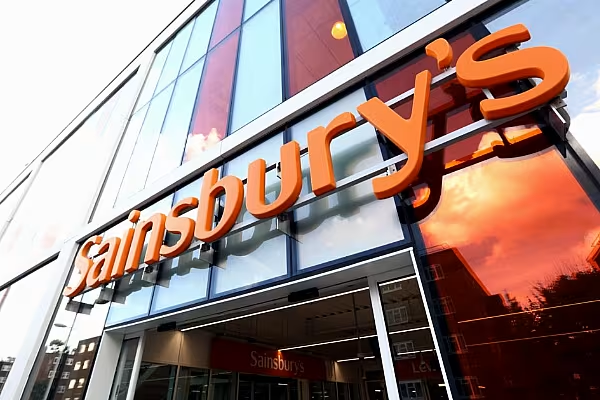British supermarket Sainsbury's said it would wind down its banking business and instead offer financial products through third parties, as part of a strategy to focus on its core retail operations.
Sainsbury's, Britain's second largest grocer, said it would switch to a distributed model for banking, with products provided by financial services companies, as it already does for insurance.
"Over time, this will result in a phased withdrawal from our core banking business," the company said in a statement.
It said it was "exploring a number of options" for the unit, and customers would not notice any immediate change.
Shares in Sainsbury's edged up 0.2% in early deals.
Financial Services
Sainsbury's, like its bigger rival Tesco, launched financial services in 1997, initially through a joint venture with Bank Of Scotland.
It launched a review of the business, which it has wholly owned since 2014, in 2020.
It considered selling the unit, but ended talks with potential buyers in 2022 because it did not believe a deal offered value for shareholders.
In August, it divested its mortgage portfolio, which comprised 3,500 customers and balances of about £479 million, to the UK-based Co-operative Bank.
Meanwhile, Tesco is reported to be exploring the sale of its bank, with sources saying Barclays is a possible acquirer.
Focus On Retail
Sainsbury's chief executive Simon Roberts said his group's move away from financial services was in line with its focus on retail.
"We have been clear since we launched our Food First strategy in 2020 that we would concentrate our efforts on our core retail businesses," he said.
Jim Brown will retire from his role as chief executive of Sainsbury's Bank, the company said, and Robert Mulhall, former boss of Allied Irish Bank's UK division, had been named to replace him.
Customers of Sainsbury's Bank would not notice any immediate change, the company said.










